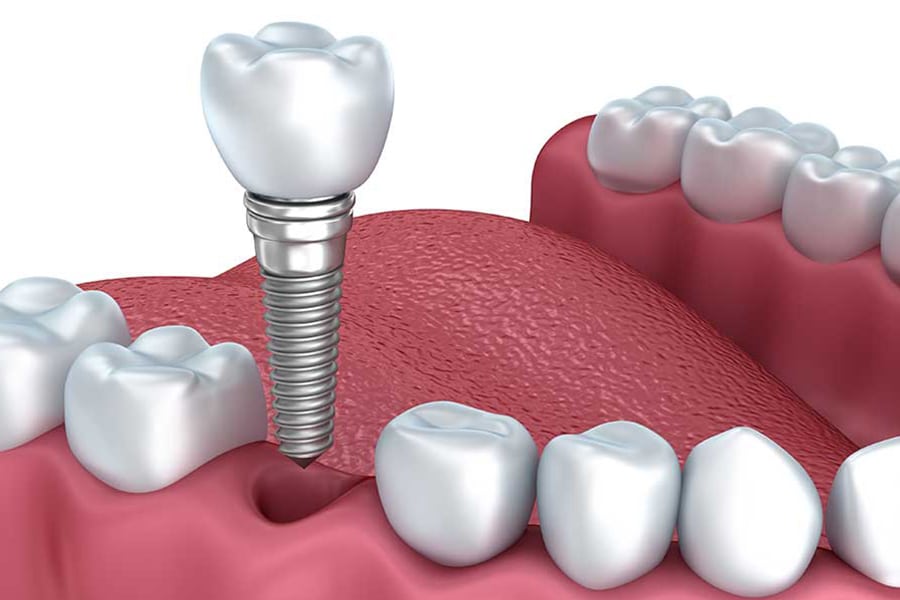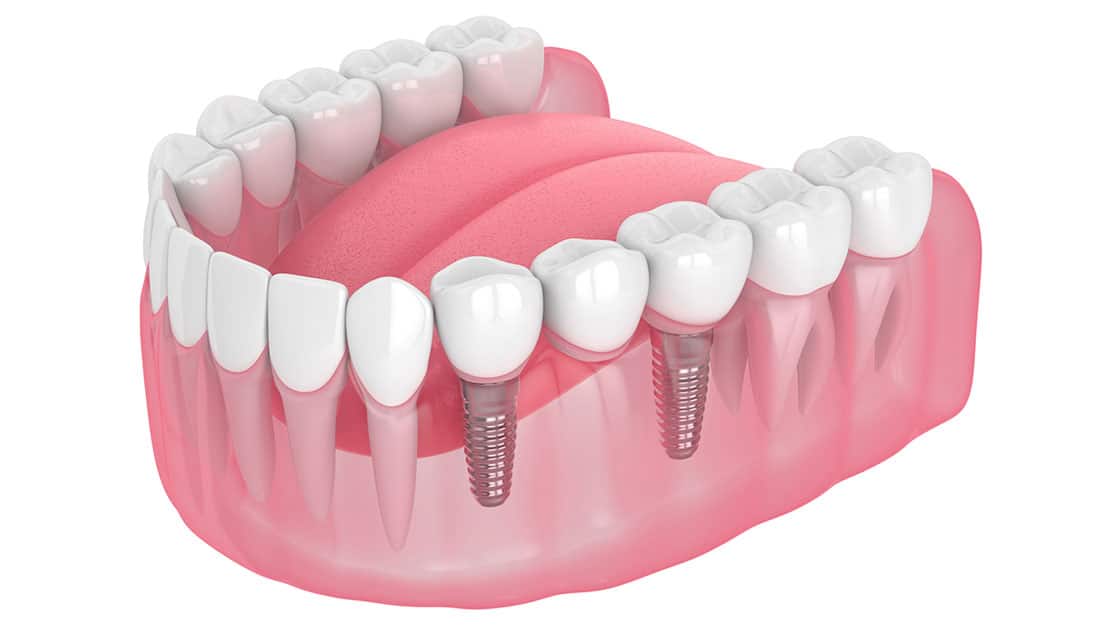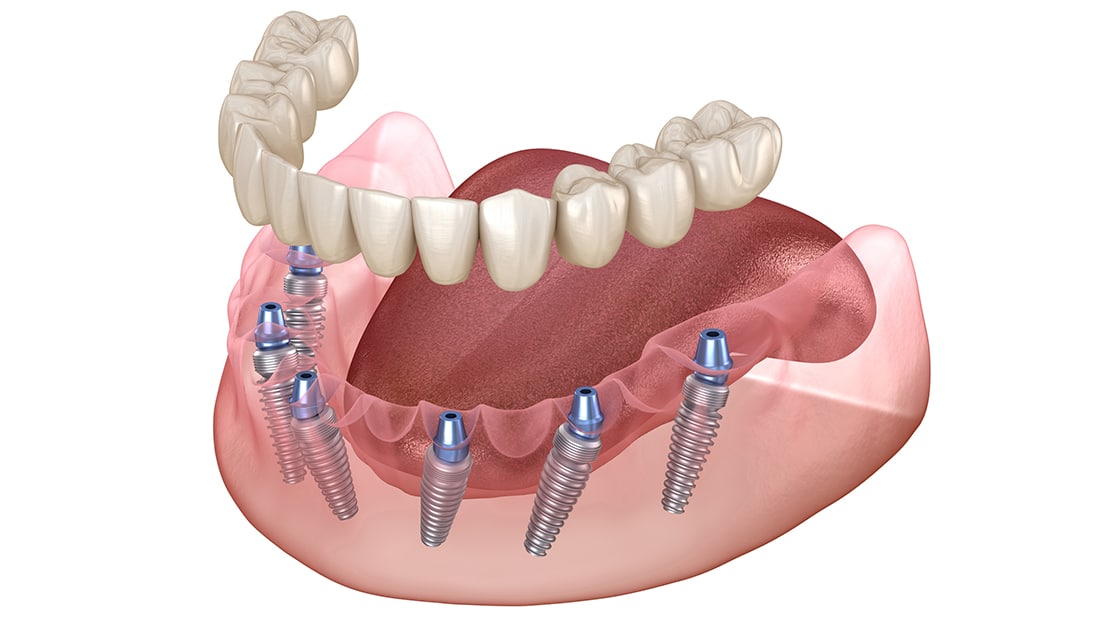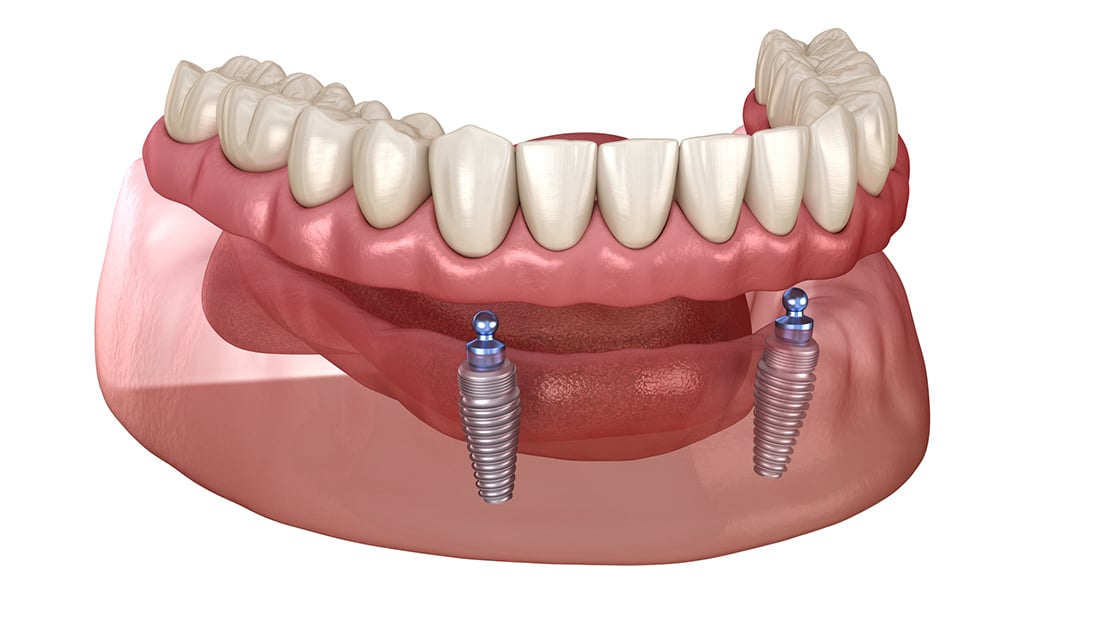Dental Implants
The best solution to replace missing teeth, dental implants can simulate natural teeth's look, feel, and function. Implants can help preserve the health of neighboring teeth, maintain bone structure, contribute to an improved ability to chew and provide patients with the confidence to smile. Learn

Single Dental Implant
Dental implants are small anchors made of a biocompatible metal called titanium that are placed in the jawbone to replace missing teeth in the mouth. After placement, the anchors will begin to fuse with the bone over the course of a few months. After the fusing process, known as osseointegration, abutment posts are inserted into the anchors to allow for the permanent attachment of the replacement teeth.

Implant Supported Bridges
An implant supported bridge is a restorative solution for spaces where three or more adjacent teeth are missing that can provide a functional and aesthetic replacement for a patient’s natural teeth.
What are the advantages of an implant supported bridge?
Because of the natural look and feel and the functional stability provided by the implants, implant supported bridges are an effective solution to replace multiple missing teeth.
A traditional bridge uses teeth on either side of the missing tooth space for support, and preparing teeth for crowns can weaken them. Because these teeth serve as attachments, they are subject to additional forces that can damage both healthy and compromised teeth or bone tissues.
A dental implant supported bridge replaces missing teeth by placing two or more dental implants rather than adjacent teeth. These implants avoid putting any additional stress on your natural teeth and help preserve the health and function of the surrounding bone tissue and teeth.
Fully Edentulous (Toothless) Solutions
For patients missing many or all of their teeth, implant retained or implant supported dentures may be an alternative to traditional dentures. These solutions can simulate the look and feel of natural teeth and stay fixed in place with the implants acting as anchors. Using implants for retention or the support of dentures allows for a smaller and more comfortable base and less shifting of the prosthesis during use.

Implant Retained Dentures
An implant retained denture requires the placement of four to six dental implants as “anchors” to provide a sturdier fit and minimal mobility for your denture. No adhesives and pastes are needed to secure your new denture, so you can eat and speak with comfort and confidence. For qualifying patients, our doctors may be able to complete the removal of all teeth and the placement of a temporary arch on the same day.

Implant Supported Dentures
Available for full or partial dentures, implant supported dentures require the placement of two or more dental implants to secure the dentures in the mouth. With implant supported dentures, there is no plate covering the roof of the mouth, so speaking and eating are more natural and comfortable than with traditional dentures. If a removable denture is selected, the denture will “snap” onto the implant and can be removed for cleaning at night.

Guided Implant Placement
3D technology allows our doctors to more accurately place dental implants using minimally invasive techniques that improve patient comfort and healing while maintaining the highest standard of treatment and restoring your smile.
The 3D digital guidance provided by this specialized software helps our team plan the implant placement procedure. It also allows the patient to visualize the implant’s future location and its support for the final restoration. Once planning is complete, our team uses this 3D-guided implant technology to create a customized surgical guide that provides greater precision and accuracy during implant placement.
